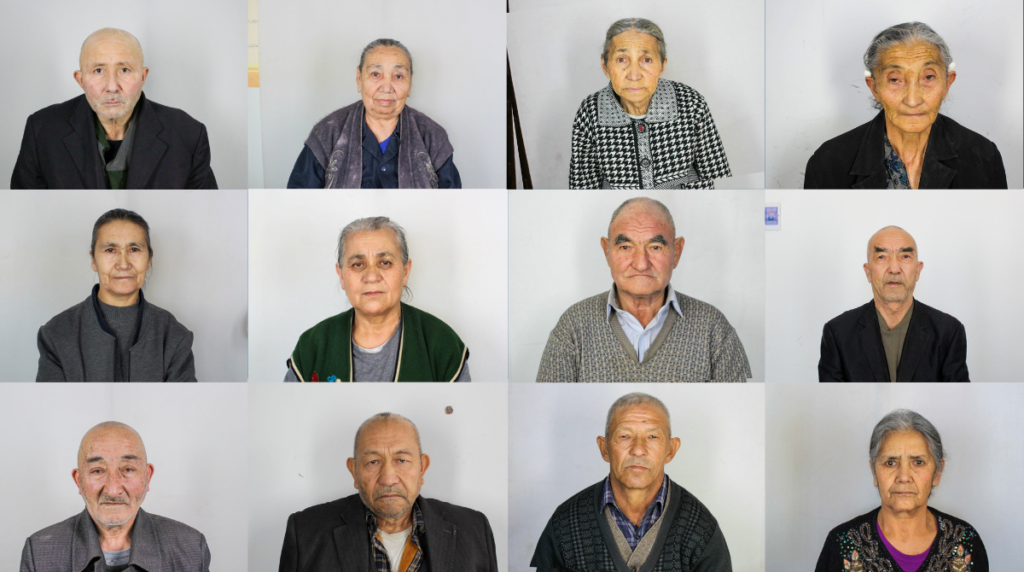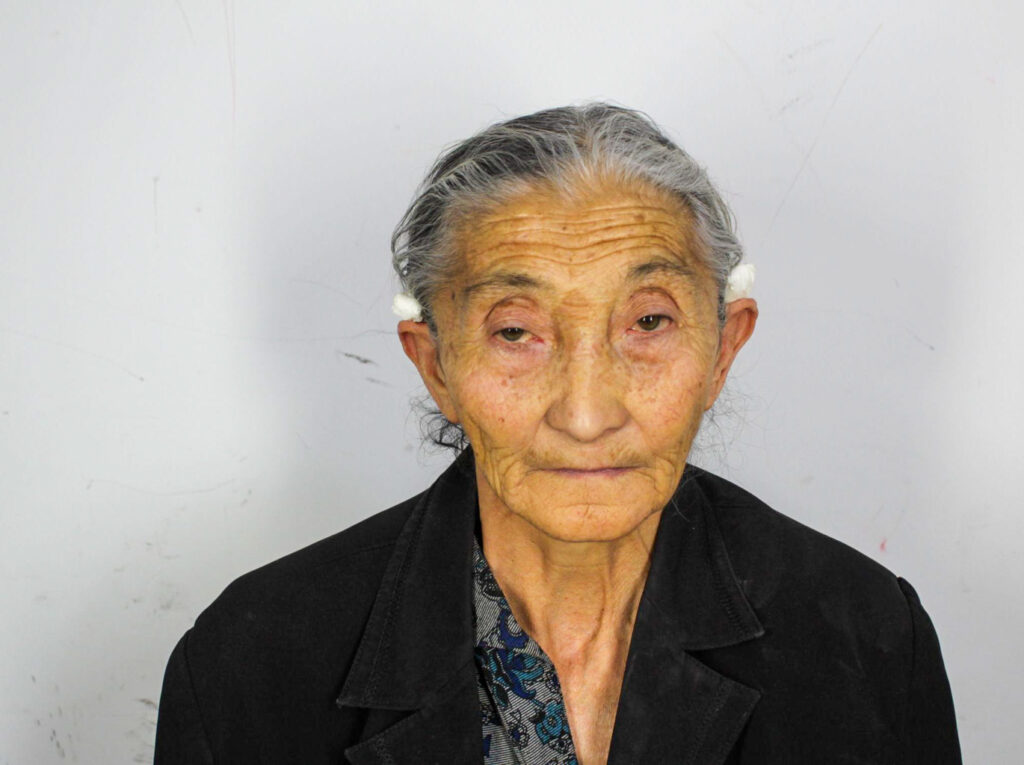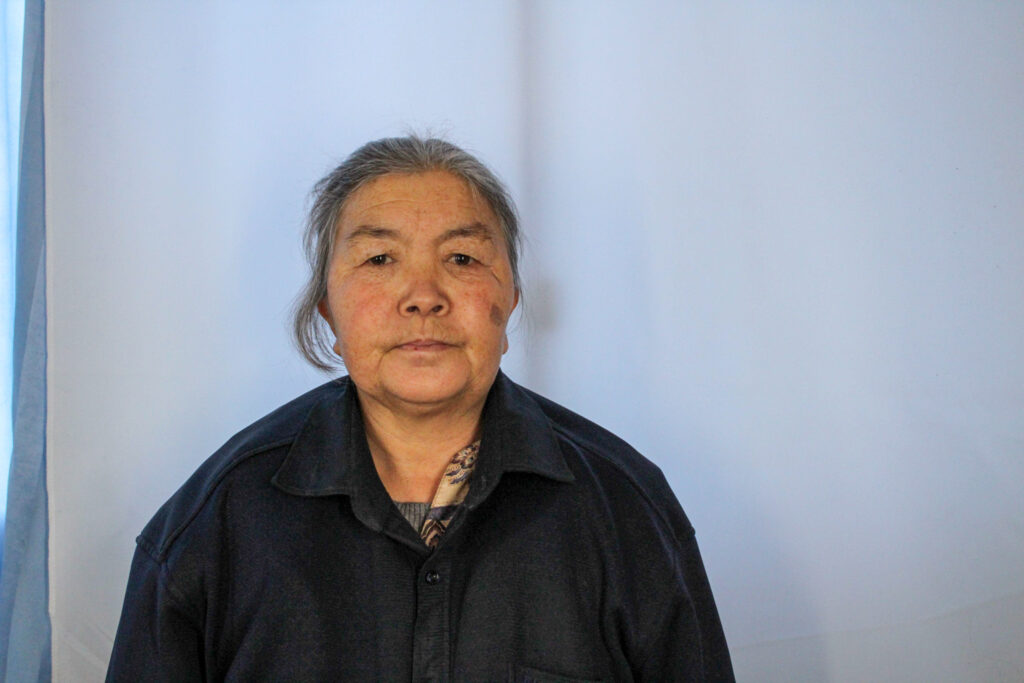The Persecution of Uyghur Senior Citizens

April 30, 2024
A UHRP Insights column by Henryk Szadziewski, Director of Research, Uyghur Human Rights Project
In February 2024, 96-year old Abidin Ayup died in prison. His body was not returned to his family. Instead, two days after his death, his remains were sent to Atush Police Department and then buried. Abidin was the father of 11 children. As the imam of a local mosque, one can imagine he had planned to spend his last years sharing his faith with other villagers in Qayraq.
His role as a religious leader had landed him in trouble before, the first time during the Cultural Revolution and then again in the 1990s. However, in 2017, he was arrested once more, at the age of 89, in yet another state-led campaign of terror. As mass internment and imprisonment of Uyghurs were in progress, the court handed him a nine year prison sentence for “promoting religious extremism.” While China thought it had shown “absolutely no mercy” to an 89 year old, Abidin’s granddaughter remembers him differently, “Our grandfather was the imam of a mosque in Qayraq for 30 years and educated children in religion.”
UHRP’s Research
The Uyghur Human Rights Project (UHRP) has researched harsh crackdowns on religious leaders in recent years. Our 2021 report Islam Dispossessed: China’s Persecution of Uyghur Imams and Religious Figures documented 1,046 instances of detention or imprisonment of Turkic imams and other religious figures, mostly due to their involvement in religious instruction and community leadership.
Then, in February this year, we published Twenty Years for Learning the Quran: Uyghur Women and Religious Persecution detailing the Chinese state’s targeting of women religious leaders.
Both of these reports note the persecution of seniors. In 2017, Patihan Imin, aged 70, received a six-year prison sentence. Her offenses included engaging in Quranic studies between April and May 1967, wearing a jilbab from 2005 to 2014, and possessing an electronic Quran reader in her home. In Islam Dispossessed, we recorded 15 cases of Uyghur religious figures who were detained after reaching the age of 70, with three of them over 90 years old. Suleyman Tohti, a renowned Uyghur molla from Kizilsu, was arrested in 2017 at the age of 86 and passed away while in police custody.
Last week, UHRP revealed that Uyghurs, Turkic and other non-Han peoples in the Uyghur Region account for more than a third (34 percent) of China’s estimated prison population, despite making up only one percent of China’s overall population.
Data From the Xinjiang Victims Database and Xinjiang Police Files
A disturbing number of Uyghur and Turkic seniors have ended up in Chinese prisons and camps. In March, the Xinjiang Victims Database compiled from its database information on 1,972 individuals aged 55 years or over serving a prison sentence. The Xinjiang Police Files, leaked documents that include internment details from two regional counties, places 86 people over 60 in Konasheher and Tekes concentration camps during 2018. Images of two interned seniors are below.


The length of sentences and charges for older persons are alarming. From the Xinjiang Victims Database, 65 seniors received prison sentences of 20 years or more. For example, 72 year old Tursun Barat, a retired government official from Ghulja, and his wife Zahidem Helpehaji, aged 69, were handed 20 year prison sentences. The most likely reason, they had traveled to Turkey to see their daughter three times between 2012 and 2016. In 2012, Tursun and Zahidem combined the visit with a pilgrimage to Mecca. So, not only were they charged with travel to a “sensitive country,” but also “terrorism.” Tursun and Zahidem are diabetic and have conditions related to their vital organs.
Imin Heyit, 67 years old and from Konasheher, was also given a 20 year prison sentence, in this case for “extremism,” “picking quarrels,” and “gathering a crowd to disturb social order.” An additional concern is that Imin is vulnerable to forced labor, given the Donghu Cement Factory is located at Turpan Prison, where he is serving his term.
In June 2023, The China Project highlighted other cases from the Xinjiang Victims Database, including 67 year old Nuri Mettursun, who died only a handful of months into a five-year prison sentence.
This is a grim legacy for Xi Jinping, whose media boasts of his “exemplary role in caring for the elderly.” However, what is the rationale behind his government’s targeting of Uyghur and Turkic seniors? Perhaps in the midst of mass detention sweeps in the region, anyone and everyone gets caught regardless of age. Another reasonable and parallel conclusion is that in its goal to cleanse Uyghur society of its knowledge bearers, China has turned its attention to older persons. The broad erasure of Uyghur knowledge in the education system, in the home, and in public life, coupled with ubiquitous party-state indoctrination from the earliest stages of life, the significance of older persons’ learning is clear.
The Eliticide of the Uyghurs
In the latest of a series of reports and briefings, in 2021, UHRP documented 312 Uyghur and other Turkic Muslim intellectual and cultural elites being held in some form of detention. However, what is startling is the number of seniors among them, according to Abduweli Ayup, a Uyghur researcher and activist, who co-authored Twenty Years for Learning the Quran.
Furthermore, there are senior knowledge bearers who have died in prison and camps, among them religious scholar Muhammad Salih Hajim, aged 82. Nurmuhammad Tohti, aged 70, a respected author, died shortly after his release. The conditions of his detention almost certainly led to his death. His grandson, and my colleague at UHRP, Babur Ilchi says, “My grandfather was targeted because he was an Uyghur intellectual as part of the Chinese government’s campaign to destroy Uyghur culture and identity.” UHRP called the targeting of Uyghur intellectuals an eliticide. As I wrote in 2019, eliticides include state-overseen killings to “wipe out any source of opposition.”
The need for universal standards is clear given the political, economic, social, and cultural exclusions seniors face across the globe. The Principles for Older Persons, a 1991 UN General Assembly resolution, outlines safeguards from ageist discourses and discriminatory actions against senior citizens that have become commonplace in our societies. Crucially, in the Uyghur context, Principle 7 states, “Older persons should remain integrated in society, participate actively in the formulation and implementation of policies that directly affect their well-being and share their knowledge and skills with younger generations.”
The UN’s first Independent Expert on the enjoyment of all human rights by older persons was in China in 2019. In the End of Mission Statement, Ms. Rosa Kornfeld-Matte neither mentions the harsh sentences, nor deaths in prison of Turkic senior citizens. That’s remiss given what was known in 2019. The office of the Independent Expert has made violence and abuse against older persons a priority, the current mandate holder, Ms. Claudia Mahler, needs to demonstrate more curiosity and issue a statement expressing concern over the treatment of Uyghur older persons.
While the UN principles are not legally binding, a Convention on the Rights of Older Persons would make visible in the international system the vulnerability of senior citizens and commit states to standards. For Abidin Damollam, Patihan Imin, Suleyman Tohti, Anihan Hamit, Gulnisa Eziz, Tursun Barat, Zahidem Helpehaji, Imin Heyit, Nuri Mettursun, Muhammad Salih Hajim, Nurmuhammad Tohti, and too many other older Uyghur persons, the right for seniors to share their knowledge was just assumed and for that they faced the persecution of the Chinese government.
Top image: Starting at top from left to right: Atalla Tohti (62), Herim Banihan Abdurrahman (72), Meryemnisa Ismayil (73), Anihan Hamit (73), Ruqiyem Eli (65), Zeytunhan Emet (68), Abliz Ghappar (68), Tewekkul Rozi (70), Turdi Sabit (68), Awut Sawut (67), Tohti Emet (68), and (Hornisa) Nuruz (67).
Read more:
Gray Matters: China’s Aging Prisoners, Dui Hua Foundation, April 23, 2024
